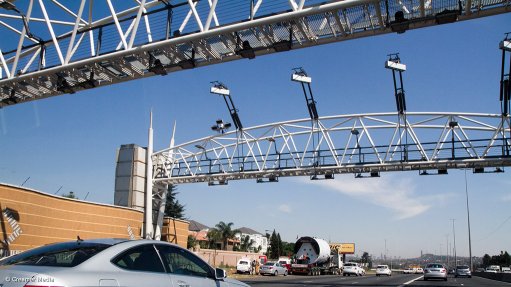
Photo by: Duane Daws
South Africa’s credit rating is at risk of being downgraded if government fails to pay the debt taken on to fund infrastructure programmes, such as the upgrading of Gauteng’s major highways, National Treasury deputy director-general for tax and financial sector policy Ismail Momoniat said on Friday, urging motorists to pay for e-tolls.
Momoniat conceded at a South African Chamber of Commerce and Industry briefing, in Johannesburg, that government should have clarified the issue of how the highway upgrades would be paid for before starting to build the roads. However, “the reality is, someone still has to pay for the roads”.
Earlier this week Deputy President Cyril Ramaphosa announced a “new dispensation” for the unpopular e-toll system, which includes lower tariffs and monthly caps.
Momoniat highlighted that government was forced to borrow money on international markets to fund infrastructure programmes, as the country experienced a Budget deficit. He also criticised South Africans for not prioritising personal savings, which is a source of capital to invest in the development of the country.
Momoniat stated that “the worst thing” that a country could do was to renege on a payment. “The moment you don’t pay one of your creditors, the rating agencies will reduce our status to ‘junk’.” Such a status, he said, would make borrowings even more expensive
“But these issues are red herrings. They are not the real issues,” Momoniat said, stating that, ultimately, South Africa had to borrow money to continue growing.
'GOVERNMENT LISTENS'
Meanwhile, Momoniat highlighted that when it came to implementing tax policy and measures, government listened to the public’s inputs.
He used the recent proposals around the Unemployment Income Fund (UIF) as an example. “Many of you know about the proposal on UIF as a fiscal boost, but then we announced that we would not proceed with that, as we took it to the National Economic Development and Labour Council [where it was met with] objections.
“When it comes to tax policy, we do listen; because when we make an announcement, it is market sensitive. We have to take public comments [into consideration] and we often [make] u-turns, because we may get it wrong,” he said.
The National Treasury had proposed to reduce the earnings threshold against which the 2% UIF levy is calculated for a year, to draw down the accumulating surplus in the fund and stimulate job and economic growth. However, after consultation with business and labour, the proposal was dropped last month.